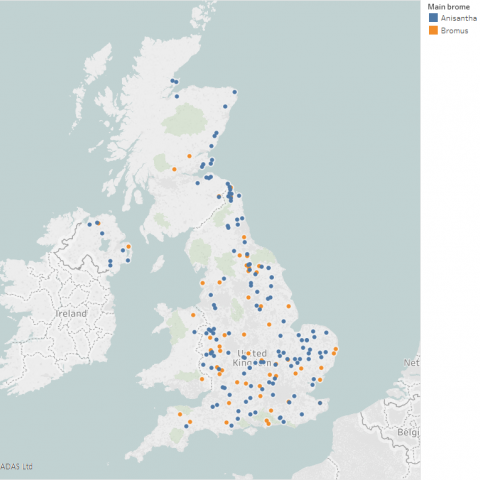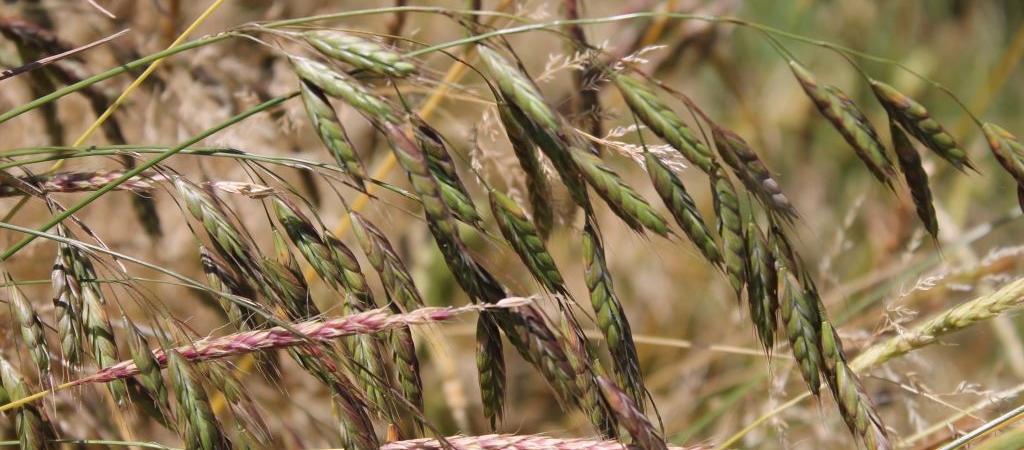Sterile or barren, it doesn’t have to be a problem any more
Sterile or barren brome are both common names for Bromus sterilis, do you have a problem controlling them on your farm? Or do you have a problem wth rye or meadow brome? If so are you interested in getting involved with a group of like-minded farmers and agronomists to help solve this problem?
As part of the AHDB-funded project – ‘Investigating the distribution and presence, and potential for herbicide resistance of UK brome species in arable farming’ – we are setting up a brome field lab part of the Innovative Farmers network.
Bromes are highly competitive weeds, with infestations of sterile brome at a population as low as 5 plants/m² causing up to a 5% yield loss in winter wheat. As part of the project, our survey has shown that sterile brome is the second most problematic grass weed in the UK, after black-grass. Brome is not just a problem of the North and the West as previously thought, but brome is widespread in arable areas as the map below shows.

Experimental work within the four-year research programme will provide information on the potential for herbicide resistance evolution in UK brome weeds and identify methods to help slow or prevent resistance evolution of these grasses.
But we also want to find out what works best in the field. We still lack information on brome species particularly when they emerge in the field, what species are present and where in the field they are located. Understanding the weed will help us target the weaknesses in its lifecycle and improve cultural control. We want to know what has been tried and what is currently working for you.
Once we have a group we will have an initial meeting in June or July and present the results we have so far. Hopefully our discussions will develop a plan for further on-farm research on aspects of control that are of concern for group members, these may include increasing the seed rate, using competitive crops such as hybrid barley, optimising the use of spring cropping, ploughing and headland management.
The research project is managed by ADAS with collaborative involvement from Rothamsted Research, BASF, Bayer, Dow AgroSciences, Monsanto and UPL.
For more information and to get involved please contact:
Sarah Cook, sarah.cook@adas.co.uk 01954 268215
Dr Sarah Cook writes of herself:
“I joined ADAS as a crop adviser 30 years ago. I have worked in all areas of crop production but my main interests have always been weed control and integrated crop management. I’m currently working on integrated control of weeds, including the inclusion of hybrid barley into the rotation and its suppression of black-grass and brome and specifically the integrated control of brome. I really enjoy working with my colleagues at ADAS in a job I love.”

